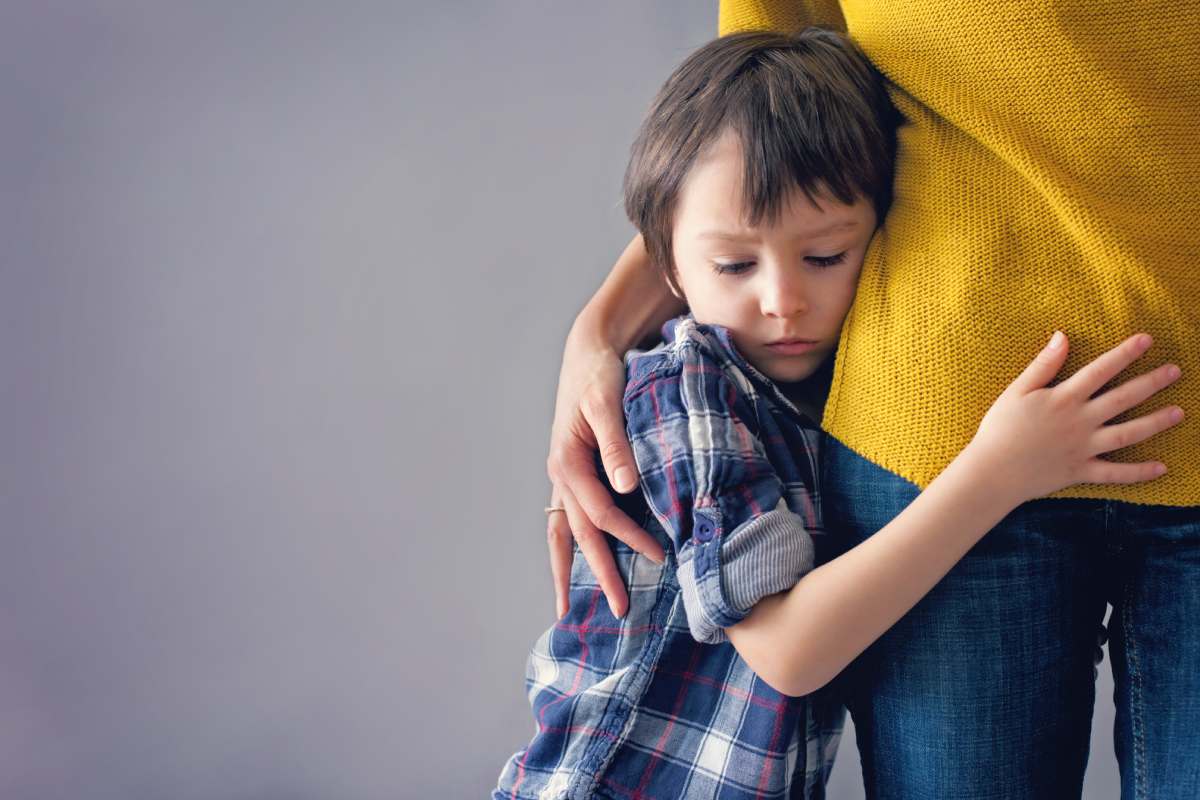Children occasionally feel anxious and worried as they go through their different stages of development. Examples of instances when this might happen include enrolling in the nursery, dealing with schoolwork, or preparing for an examination. It shouldn’t worry you as a parent, as this is a normal part of growing up for children.
However, there are instances when anxiety becomes overwhelming for kids, and when this happens, you need to be concerned. But how can you tell if your child’s anxiety is beyond normal levels? Here’s a guide detailing everything you need to know to help you quickly come up with a way to deal with this issue before it gets any worse. Let’s get started.
Table of Contents
What’s Anxiety Disorder?

You first need to understand what anxiety disorder is before looking for its signs and proper medication, as advised in https://apibhs.com/anxiety-treatment. Anxiety disorder is a mental health condition that results in general feelings of distress, fear, and worry. When your child suffers from anxiety, they might become terrified of doing simple daily tasks such as playing, going to school, or socializing with friends.
Because children have different stress handling capabilities, the triggers of anxiety among children, as with adults, differ from one kid to another. However, children typically start experiencing anxiety disorders due to specific triggers such as;
- Constant arguing and fighting between parents
- Being neglected or abused
- Frequent changing of school or house
- The death of a parent, sibling, friend, or close relative
- School-related problems such as bullying or examinations
- Getting injured badly or becoming severely ill
If your child starts to exhibit signs of anxiety, they need to be diagnosed and treated right away. Otherwise, this mental health condition may worsen over time, making your kid go through emotional and physical distress. Because of this, it’s advisable to identify signs of anxiety a lot sooner to prevent any unwanted escalation of this mental disorder.
What Are The Signs Of Anxiety In Children?
If you wish to confirm that your child is suffering from anxiety, you should be looking out for specific signs. These include;
- Difficulty sleeping
- Restlessness
- Hard time focusing at home and in school
- Extreme fear and phobias, for instance, fear of the dark or being away from parents
- Constant complaints of headaches and stomachaches
- Changes in appetite
- Constant crying
- Begins to sweat and shake when in frightening situations
- Constantly tenses muscles
- Social withdrawal from friends or family.
- Bedwetting
- Irritability
- Suffering from low self-esteem
- Nail-biting
- OCD-like behaviors such as constantly checking the door to confirm it’s closed
- Excessive clinginess
- Hiding away items that hold little value
- Changes in behavior, such as aggression, moodiness, and temper tantrums
- Refusing or struggling to go to school
- Constantly having negativity in their mind
Anxiety symptoms can differ from one child to another. Therefore, you must take time to carefully examine your child to see when they exhibit any of these anxiety symptoms. Some of these symptoms, such as phobia, start manifesting when your child has a bad experience with particular objects, settings, or situations. Knowing the triggers will be vital because it’ll help determine whether your child is suffering from anxiety rather than a medical condition.
What Are The Types Of Childhood Anxiety
There are various kinds of anxiety disorders, and the most common ones include;
1. Generalized Anxiety Disorder (GAD)
Everyday activities, for example, exams, homework, and fearing punishment due to making mistakes, can trigger this kind of anxiety disorder among children. Typically, kids with GAD have a hard time controlling their emotions of worry. It can lead to them suffering from some impartment and distress.
Some of the symptoms of GAD include;
- Hard time reducing worry
- Restlessness
- Constantly fussing about the future
- Hard time sleeping
- Excessive or uncontrollable distresses linked to routine activities
- Unusual fret about achieving expectations of friends, family, or school
- Easily irritable
- Difficulty concentrating
Before being diagnosed with GAD, a child must exhibit these symptoms for six or more months.
2. Obsessive-Compulsive Disorder (OCD)
This anxiety disorder is another mental disorder that plagues children and is characterized by persistent intrusive worries and thoughts about specific things. OCD causes children to display repetitive compulsions or mental acts that make them feel anxious and distressed when not done. As a result, the child might start perfuming specific actions such as;
-
- Constantly checking and rechecking items
- Repeating particular phrases or words
- Religious obsessions
- Fear of contamination, germs, or dirt, leading to excessive washing of hands
- Intrusive words or sounds
- Aggressive thoughts
3. Separation Anxiety Disorder
This type of anxiety usually appears during a child’s preschool years and is characterized by excessive fear of being away from parents or caregivers. Separation anxiety is quite common among kids aged three to four years but can also happen as kids get older. Unlike other kids, children with this anxiety disorder experience far greater panic.
This anxiety disorder is triggered when a child doesn’t see their parents or caregivers. Some of the common signs of this disorder are;
-
-
- Dreams about separation
- Too much distress or worry when not near the primary caregiver
- Fears of being alone or falling asleep
- Physical symptoms like stomachaches or headaches before a looming separation
- Refusal to go to school or leave home
- Panic or tantrums during separation from caregiver or parents
-
These symptoms of separation anxiety manifest for at least four weeks.
4. Selective Mutism
If your child is suffering from selective mutism, they’ll find it difficult to speak during certain situations, for example, talking in front of other adults. Parents often overlook this anxiety disorder by assuming their child is shy. However, this isn’t the case because this disorder can be so severe that your kid freezes and can’t speak altogether due to uncomfortable and anxious feelings.
For this condition to be diagnosed, there are a couple of signs you need to look for, including;
-
-
- Inability to speak in some situations
- Experience challenges with social activities and school
- Suffer this persistent issue for at least one month
-
Therefore, when you notice your child refusing to talk when with strangers, friends, or at school unless they’re with close friends or family, this is a clear sign of selective mutism.
5. Panic Attacks
Another kind of anxiety disorder that develops as your child grows older is panic attacks, a sudden feeling of fear even when there is no real threat. Some of its symptoms include;
-
-
- Hot flashes or chills
- Chest pain
- Abdominal pain or nausea
- Dizziness
- Sweating and shaking
- Fast heart rate or palpitations
-
Takeaway
Identifying anxiety in your child as soon as possible is crucial if you want to succeed at remedying this disorder before it worsens. And for that, this article has given signs and examples of anxiety disorder so you can quickly take action to remedy this mental health condition.












